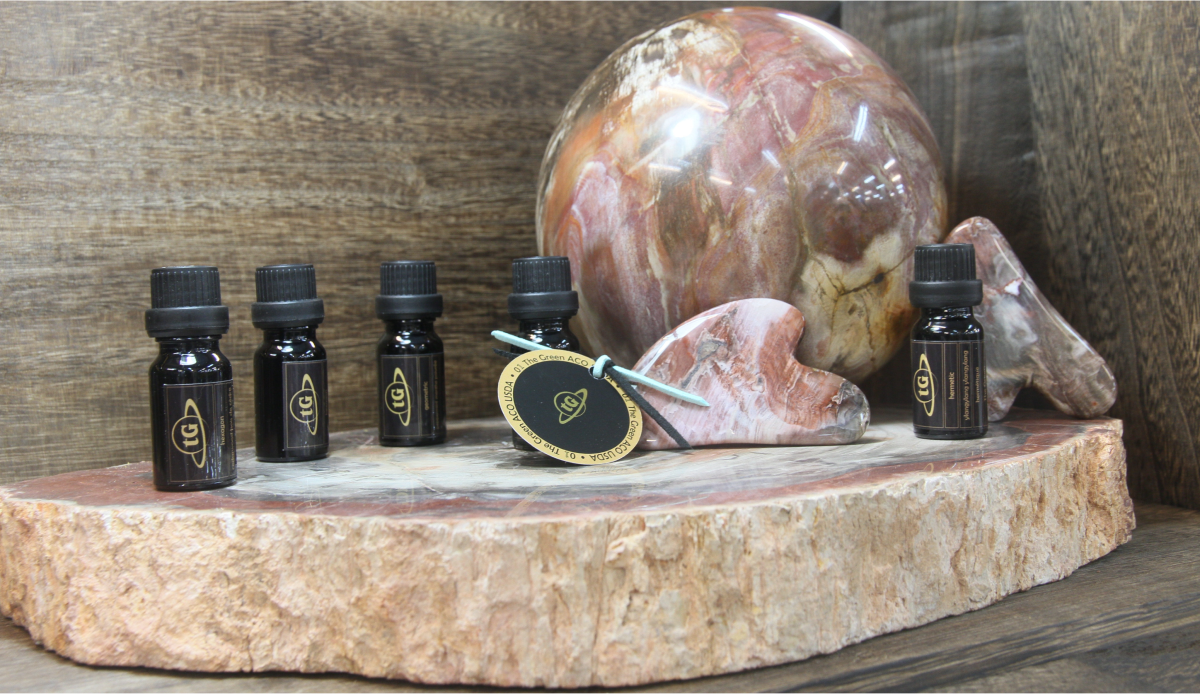- “Planet Playful Aroma” evokes wonder and curiosity, suggesting a joyful world filled with playful creativity. The phrase conjures a vast realm of possibilities and discoveries, where happiness and relaxation revel in the delightful scent of joy.
- “Planet” suggests a vast world of possibilities and discoveries.
- “Playful” embodies light-heartedness, creativity, and fun.
- “Aroma” denotes a pleasant scent linked to happiness and relaxation.
Together, “Planet Playful Aroma” paints a vivid picture of a joyous world where the air is infused with uplifting energy, evoking delight and wonder. The story of tG.
- “01密码之薰” (01 mìmǎ zhī xūn) is a poetic and intriguing phrase that combines elements of mystery and aroma.
- “01” suggests a code or a secret message
- “密码” (mì mǎ) deciphers to a “secret code’’
- “之” (zhī) is a possessive particle, indicating “of” or “belonging to”
- “薰” (xūn) deciphers to “aroma” or “delicate scent”
Together, the phrase “01密码之薰” can be interpreted as “Fragrance of Secret Code 01”. It evokes the image of a mysterious scent intertwined with a secret code, suggesting that the code possesses a hidden fragrance, awaiting discovery by someone with the right key or deciphering skills. The story of tG.
- “1001密码之薰” (1001 mìmǎ zhī xūn) is a poetic and intriguing phrase that combines elements of mystery and aroma.
- “1001” suggests a code or a secret message
- “密码” (mì mǎ) deciphers to a “secret code”
- “之” (zhī) is a possessive particle, indicating “of” or “belonging to”
- “薰” (xūn) deciphers to “aroma” or “delicate scent”
Together, the phrase “1001密码之薰” can be interpreted as “Fragrance of Secret Code 1001”. It evokes the image of a mysterious and alluring scent hidden within the code, waiting to be uncovered by someone with the right key and deciphering skills. In an abstract sense, it implies the idea of a hidden truth or revelation awaiting discovery, with the fragrance symbolizing the sweet scent of unravelling secrets. The story of tG.
- “⼈体系统” (rén tǐ xìtǒng) is a term that consists of three syllabus:
- “⼈” (rén) deciphers to “human” or “person”
- “体” (tǐ) suggests a “body” or “physical form”
- “系统” (xìtǒng) is a “system” or “organism”
Together, the term “⼈体系统” means “human body system” or “human physiological system”.
This term refers to the intricate network of organs, tissues, cells, and processes that sustain human health and bodily function. Some examples of human body systems include: – Nervous system, Lymphatic system, Circulatory system, Respiratory system, Digestive system, Endocrine system, Immune system, Muscular system, Skeletal system, Integumentary system.
Each of these systems plays a vital role in maintaining the overall health and well-being of the human body. The story of tG.
- “万相薰空” (wàn xiāng xūn kōng) is a poetic and contemplative phrase blending manifold appearances, aroma, and serenity.
The phrase “万相薰空” (wàn xiāng xūn kōng) can be interpreted as follows:
- “万相” (wàn xiāng) deciphers to “myriad appearances” or “countless manifestations”
- “薰” (xūn) means “fragrance” or “scent”.
- “空” (kōng) suggests an “emptiness” or “void”
Together, the phrase “万相薰空” can be translated to “The Fragrance of Emptiness in All Phenomena” or “Manifold Appearances are Empty and Fragrant”.
This phrase creates an image of all phenomena and appearances being empty and void, yet simultaneously filled with a subtle and delicate fragrance, much like the scent of incense. It suggests the idea that everything in life is interconnected and impermanent, and that true wisdom and understanding come from embracing this emptiness and impermanence.
In an abstract sense, the phrase could also imply the idea that the world we experience is a complex web of appearances and phenomena, but beneath the surface lies a deeper reality that is empty and void, yet serene and beautiful. The story of tG.
- The phrase “品然识薰” (pǐn rán shí xūn) may be interpreted as follows:
- “品” (pǐn) deciphers to “refined” or “cultivated”
- “然” (rán) means “so” or “thus”
- “识” (shí) deciphers to “knowledge” or “awareness”
- “薰” (xūn) suggests a “fragrance” or “scent”
“品然识薰” translates to “Cultivated Awareness of the Fragrance” or “Refined Knowledge of the Incense”. It’s commonly used in spiritual and philosophical context to denote a refined state of consciousness, akin to appreciating the subtle and profound aspects of life, much like the nuanced fragrance of incense.
In a poetic sense, “品然识薰” embodies the delicate and subtle scent of wisdom, revealing itself only to those whose awareness and understanding are finely cultivated. The story of tG.
- “空然薰然” (kōng rán xūn rán) is a poetic and contemplative phrase that blends themes of emptiness, fragrance, and the subtle nuances of nature.
- “空然” (kōng rán) deciphers to “empty” or “void”, but also implies a sense of clarity and openness.
- “薰” (xūn) means “fragrance” or “scent”
- “然” (rán) is a particle that implies a subtle or refined quality, similar to “like” or “as if”.
“空然薰然” translates to “Empty and Fragrant, Like Incense” or simply as “Void and Scented”.
This phrase evokes an image of a clear and open mind, subtly fragrant like incense. It suggests cultivating a refined, receptive mind for deeper self-awareness and connection with the world.
In a more abstract sense, the phrase suggests that true wisdom comes from embracing the void or the unknown, which itself is subtle and fragrant, akin to the scent of incense. The story of tG.
- The phrase “绿识薰介” (lǜ shí xūn jiè) may be interpreted as follows:
- “绿” (lǜ) means “green” or “nature”
- “识” (shí) deciphers to “knowledge” or “awareness”
- “薰” (xūn) is a “fragrance” or “scent”
- “介” (jiè) means “to introduce” or “to connect”
Together, the term “绿识薰介” can be translated as “Introducing the Fragrance of Natural Awareness” or “Connecting with the Essence of Green Knowledge”.
In spiritual and philosophical contexts, it describes the process of introducing others to the wisdom of the natural world. “Fragrance” or “scent” symbolizes nature’s subtle qualities that inspire awe and wonder, while “green knowledge” signifies understanding gained from observing and appreciating nature.
In a poetic sense, “绿识薰介” gently introduces us to the beauty and wisdom of nature, guiding us towards a deeper connection with the world around us and the inherent knowledge it holds. The story of tG.
- “精⽓神薰” (jīng qì shén xūn) is a term that combines four Chinese characters:
- “精” (jīng) deciphers to “essence” or “spirit”
- “⽓” (qì) means “energy” or “breath”
- “神” (shén) suggests a “mind” or “consciousness”
- “薰” (xūn) is a “fragrance” or “scent”
Together, the term “精⽓神薰” translates to “The Fragrance of Essence, Energy, and Mind” or “The Incense of Spirit, Breath, and Consciousness.”
Spiritual refers to the harmonious balance and unity of one’s physical, mental, and spiritual aspects. It denotes a state of wholeness and integration, where essence, energy, and mind align perfectly, emitting a subtle yet profound fragrance or aura.
In a poetic sense, “精⽓神薰” can be likened to the culmination of inner beauty, wisdom, and compassion emanating from a person that is enriched by the world around them. The story of tG.
- “然神归薰” (rán shén guī xūn) is a combination of four Chinese characters:
- “然” (rán) means “so” or “thus”
- “神” (shén) deciphers to “spirit” or “mind”
- “归” (guī) suggests “return” or “go back”
- “薰” (xūn) means “fragrance” or “scent”
This phrase “然神归薰” translates to “The Spirit Returns to the Fragrance” or “The Mind Goes Back to the Incense.”
This term is often used in spiritual and philosophical contexts to describe the return of the mind or spirit to its original state of inner clarity, peace, and harmony. “Fragrance” or “scent” symbolizes the subtle, awe-inspiring qualities of this state.
In a poetic sense, “然神归薰” can be likened to the gentle return of the spirit to its source, akin to the fragrance of incense wafting back to its origin, guiding us home to our deepest sense of wisdom and understanding. The story of tG.
- “观空然薰” (guān kōng rán xūn) is a poetic and contemplative phrase that combines elements of observation, emptiness, and aroma.
- “观” (guān) deciphers to “to observe” or “to contemplate”
- “空然” (kōng rán) means “empty” or “void”, but also implies a sense of clarity and openness
- “薰” (xūn) is a “fragrance” or “scent”
Together, the phrase “观空然薰” can be translated as “Contemplating the Fragrance of Emptiness” or “Observing the Void through Incense”.
This phrase evokes an image of a contemplative mind observing empty space, akin to the delicate scent of incense. It suggests cultivating a mind that is receptive and aware for deeper self-connection and understanding of the world.
In an abstract sense, the phrase implies that true wisdom arises from contemplating the void or unknown, which is itself an aromatic and beautiful experience, akin to the conscious scent of incense. The story of tG.
- “观⾊薰归” (guān sè xūn guī) is a term that combines four Chinese characters:
- “观” (guān) deciphers to “view” or “contemplate”
- “⾊” (sè) means “color” or “appearance”
- “薰” (xūn) is a “fragrance” or “scent”
- “归” (guī) suggests a “return”
This phrase “观⾊薰归” can be translated as “Returning to the Fragrance of Contemplation” or “Going Back to the Incense of Color”.
In poetic and philosophical contexts, it describes returning to mindfulness and presence to appreciate the world’s beauty and wonder. “Fragrance” or “scent” symbolizes the subtle qualities of experience, while “returning” evokes coming back to one’s true nature or original state.
In an abstract sense, “观⾊薰归” metaphorically represents the journey of self-discovery and spiritual growth, where one returns to the simplicity and wonder of the present moment, akin to the fragrance of incense returning to its source, guiding us to our deepest sense of wisdom and understanding. The story of tG.
- “薰识归然” (xūn shí guī rán) is a combination of four Chinese characters:
- “薰” (xūn) means “fragrance” or “scent”
- “识” (shí) deciphers to “knowledge” or “awareness”
- “归” (guī) suggests to “return” or “go back”
- “然” (rán) deciphers to “so” or “thus”
Together, the term “薰识归然” can be translated as “Returning to the Fragrance of Awareness” or “Going Back to the Incense of Knowledge”.
In spiritual and philosophical context, it describes returning to one’s true nature characterized by awareness, wisdom, and connection to the natural world. “Fragrance” or “scent” symbolizes the subtle qualities evoking inner peace, clarity, and harmony.
In a poetic sense, “薰识归然” metaphorically represents the gentle return to our true nature, akin to incense returning to its source, guiding us to our deepest sense of wisdom and understanding. The story of tG.
- “1001薰” (1001 xūn), a beautiful combination! combines the significant number of 1001 with the character “薰” (xūn), meaning “fragrance” or “scent”.
Together, the term can be translated to “The 1001 of Fragrance” or “Incense of Prosperity,” leveraging the auspicious connotations of 1001 in Eastern cultures. “1001薰” poetically suggests a harmonious blend of countless fragrances creating a captivating aroma.
Alternatively, it could symbolize the fragrance of abundance, prosperity, and good fortune, qualities often linked with the number 1001 in Eastern cultures. Overall, “1001薰” is a captivating and evocative term that prompts contemplation and reflection on the beauty and wonder of life! The story of tG.
- “艺术薰道” (yì shuài xūn dào), a beautiful term!
- “艺术” (yì shuài) deciphers to “art” or “artistry”
- “薰” (xūn) means “fragrance” or “incense”.
- “道” (dào) suggests a “way” or “path”. The Fragrant Path of Art” or “The Way of Artistic Incense”.
The term suggests art and creativity as a fragrant journey, guided by intangible qualities, implying that artistic pursuit is a winding path demanding dedication, passion, and a trust in creative instincts. In a more poetic sense, “艺术薰道” might be seen as the scent of imagination, creativity, and self-expression, guiding us along the winding path of artistic exploration and discovery. The story of tG.
- “1薰01” (1 xūn 01), a clever variation!
“One Fragrance Zero One” suggests a singular, unique scent or essence (“1 薰”) refined to its purest form (“zeroing in”) and emerging refreshed (“01, like a fresh start”).
- “Fragrance of Unity” underscores the unity and oneness of everything, where the fragrance signifies harmony and balance.
- “Fragrance” blends the code (01) with the fragrance character, potentially symbolizing a virtual scent or aroma.
Without additional context, deciphering the exact intended meaning of “1薰01” proves challenging, yet it undeniably presents a thought-provoking and imaginative combination! The story of tG.
- “九六格薰” (jiǔ liù gé xūn), an intriguing combination!
- “九” (jiǔ) translates to “nine”
- “六” (liù) means “six”
- “格” (gé) deciphers to “pattern” or “structure”
- “薰” (xūn) is a “fragrance” or “scent”
Together, the term can be translated to “The Fragrance of Nine-Six Patterns” or “Incense of the 9-6 Structure”.
In numerology, 9 and 6 are regarded as auspicious numbers, symbolizing completion and harmony. The term could potentially represent the scent of success or the essence of accomplishment.
In art or design, the 9-6 pattern may denote a particular composition or layout, where the fragrance embodies creativity and inspiration.
From a more abstract perspective, the term could suggest a harmonious balance between two complementary elements (9 and 6), where the fragrance embodies the beauty and essence of this harmony. Additional context is needed for a more precise interpretation. Feel free to provide more information or clarification, and we’ll assist you further! The story of tG.
- “细细⼼薰” (xì xì xīn xūn), a lovely term!
- “细” (xì) deciphers to “delicate” or “refined”
- “细” (xì) deciphers to “delicate” or “refined” (again)
- “⼼” (xīn) means “heart” or “mind”
- “薰” (xūn) is a “fragrance” or “scent”
“Delicate Mind Fragrance” or “Refined Heart Incense”.
A delightful concept, where the mind and heart are imbued with a delicate, refined fragrance akin to the sweet scent of incense. It suggests a link between mental clarity, emotional refinement, and the subtle realms of the heart.
“细细⼼薰” can be viewed as the practice of nurturing a gentle, refined mind, where thoughts and emotions are distilled into a fragrant essence, enveloping the surroundings with the sweet aroma of inner peace and harmony. The story of tG.
- “宇艺标薰” (yǔ yì biāo xūn), a subtle variation!
- “宇” (yǔ) deciphers to “universe” or “cosmos”
- “艺” (yì) suggests an “art” or “skill”
- “标” (biāo) means a “mark” or “sign”
- “薰” (xūn) is a “fragrance” or “scent”
“The Universe Marks Art with Fragrance” or “Cosmic Artistry Leaves a Fragrant Trace”.
The universe is perceived as the supreme creator, imprinting its signature on the art and craftsmanship it inspires. The terms “fragrance” or “incense” symbolize the subtle, intangible qualities of this cosmic artistry, evoking a profound sense of wonder and awe.
In essence, “宇艺标薰” implies that the universe is the supreme artist, and our creations merely mirror its limitless imagination and beauty. The story of tG.
- “艺术薰尚” (yì shuài xūn shàng), another beautiful term!
- “艺术” (yì shuài) deciphers to “art” or “artistry”
- “薰” (xūn) is a “fragrance” or “scent”
- “尚” (shàng) translates to “elegant”. “Elegant Fragrance of Art” or “Refined Incense of Artistry”.
The essence of artistic creativity is refined, elegant, and subtle, much like the delicate fragrance of incense permeating the air. This suggests that genuine artistry involves more than technical prowess; it requires cultivating refinement, taste, and elegance in creative expression.
“艺术薰尚” might be seen as the delicate and refined scent of artistic expression, wafting through the air and leaving a lasting impression on all who experience it. The story of tG.
- Lymphatic System
Lymph is a clear fluid that circulates in the lymphatic system, which is a network of vessels, organs, and tissues that help defend the body against infection and disease. The lymphatic system is a vital part of the immune system and plays a key role in:
- removing waste and toxins from the body
- transporting white blood cells to areas of the body where they are needed
- helping to fight infection and disease
- absorbing fats and fat-soluble vitamins from the digestive system
Some common conditions related to the lymphatic system include:
- Lymphedema (swelling caused by excess lymph fluid)
- Lymphoma (cancer of the lymphatic system)
- Lymphadenitis (inflammation of the lymph nodes)
- Lymphangitis (inflammation of the lymph vessels)
Maintaining a healthy lymphatic system is important for overall health and well-being. This can be achieved through regular exercise, a balanced diet, and proper hydration. The story of tG.
- The Nervous System
The nervous system is a complex system that consists of two main parts: the central nervous system (CNS) and the peripheral nervous system (PNS).
Central Nervous System (CNS):
- Brain
- Spinal cord
Peripheral Nervous System (PNS): –
- Somatic nervous system (voluntary movements)
- Autonomic nervous system (involuntary movements)
- Sympathetic nervous system (fight or flight response)
- Parasympathetic nervous system (rest and digest response)
The nervous system has several key functions:
- Control and coordination of body movements
- Transmission and processing of sensory information
- Regulation of various bodily functions (e.g., heart rate, blood pressure, digestion)
- Facilitation of thought, emotion, and behavior
- Maintenance of homeostasis (the body’s internal balance)
Some common disorders and conditions affecting the nervous system include stroke, epilepsy, parkinson’s disease, multiple sclerosis, alzheimer’s disease and migraine.
These are just a few examples, as there are numerous other neurological disorders and conditions that can impact various components of the nervous system, such as the brain, spinal cord, and peripheral nerves.
Understanding the nervous system is crucial in developing effective treatments and therapies for these conditions, as well as the maintaining overall health and well-being. The story of tG.








